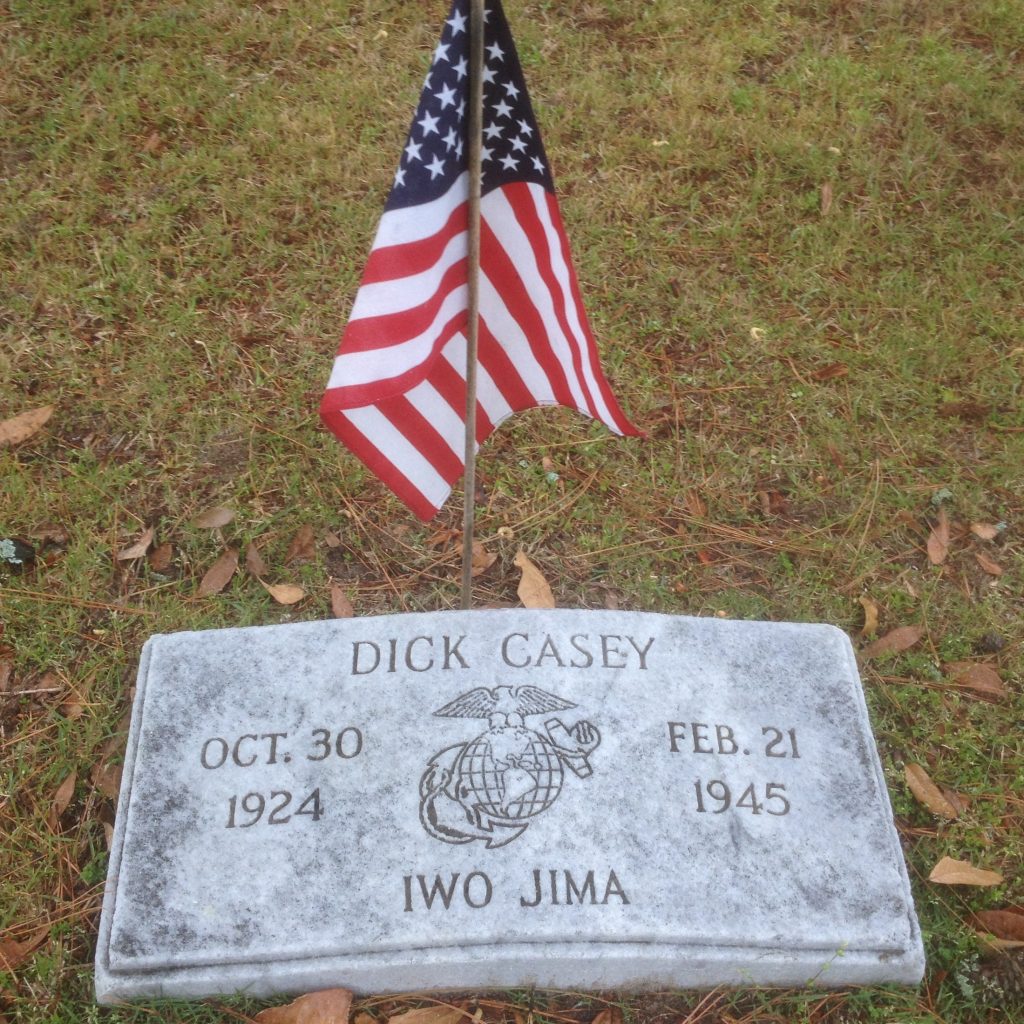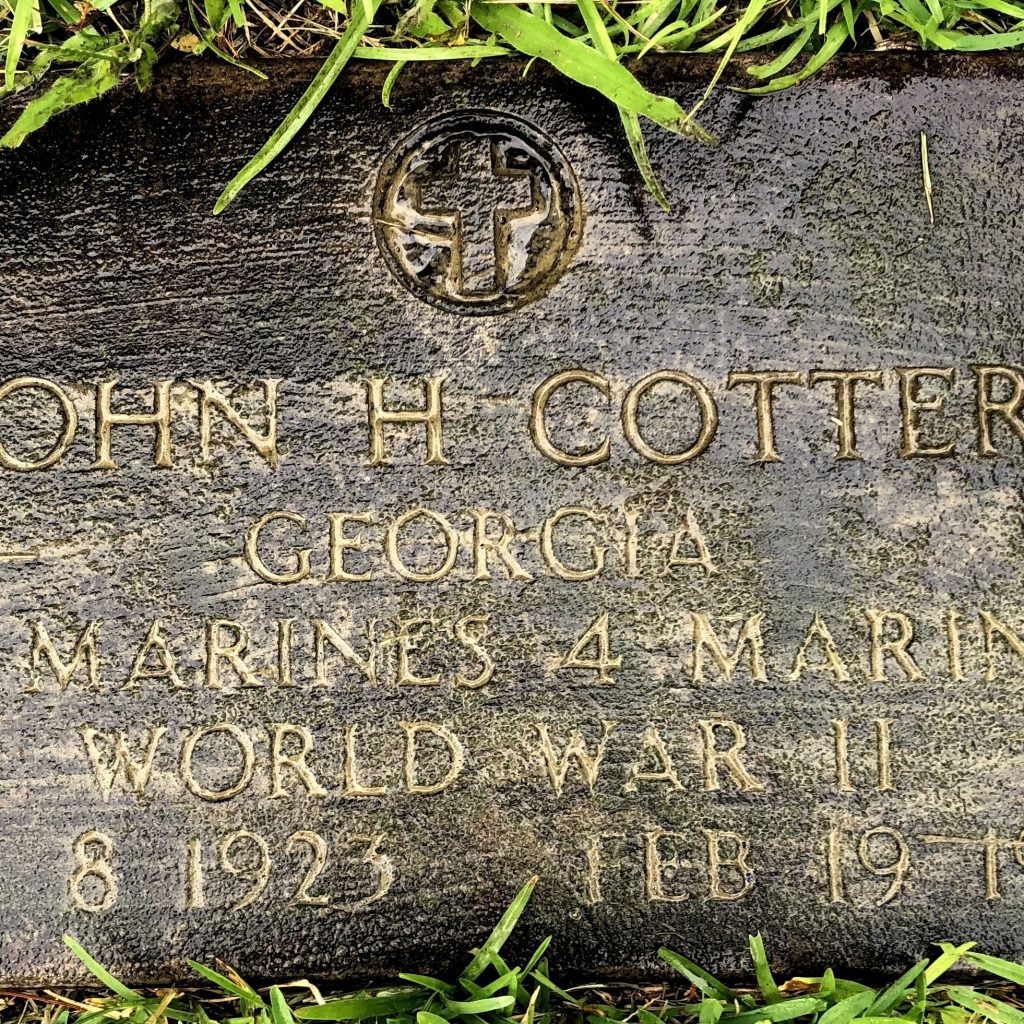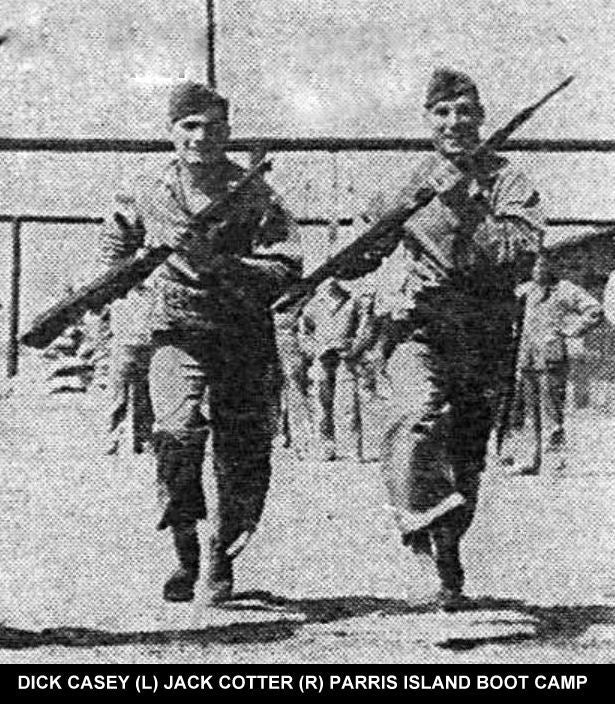Gerald Richard “Dick” Casey and John Henry “Jack” Cotter were both born in Augusta in the early 1920s, and they formed a great friendship that would last their entire short lifetimes. They died together on a beach far away from home, but, long after their deaths, their lifelong friendship is still remembered to this day.
Cotter and Casey met as children attending Sacred Heart Academy and quickly became inseparable. Both had a love for sports, especially baseball and later football.
The pair would go on to study together at Richmond Academy, Boys’ Catholic High School, Belmont Abbey and the Citadel. Both were in the class of 1946, but both would excel in their studies and graduated early.
MORE: Something You Might Not Have Known: Augusta has a long history of prohibition
By late 1944, the tides of war in Europe had turned against the Axis powers, but Cotter and Casey were both eager to serve their nation and enlisted together in the U.S. Marine Corps. According to an editorial in The Augusta Chronicle published after their deaths, the pair supported each other through the grueling trials of boot camp in Parris Island and were later assigned to the same unit, the 4th Marines.
According to Augusta historian Doug Herman Sr., who father was friends of both the Cotter and Casey families, the two men had consecutive serial numbers on their dog tags. By all accounts, both men were excellent soldiers and sped through boot camp to eventually make their way to the Pacific war theater.
[adrotate banner=”71″]
By 1945, most of Germany lay in ruins and military leaders on both sides knew the fall of the Third Reich was only a matter of time. However, things were far more uncertain with the war in the Pacific.
The island hopping strategy of the Allies was working, but it had come at a terrible rate of casualties.
Ships were in constant peril from Japanese submarines and kamikaze attacks were becoming more and more frequent. Even the mighty aircraft carrier Yorktown was consigned to the deep by an onslaught of torpedoes.
The Japanese-held islands were fortresses and masses of troops could be hidden easily in the thick jungles.
The Japanese troops were also some of the most fanatical on the planet and were not only willing to die for their Emperor, but considered it a great honor. The word surrender was strictly verboten.
MORE: Sylvia Cooper Column: City politics asked and answered
According to World War II documentarian Mark Felton, a battalion of Japanese soldiers during the battle of Ramree Island decided to brave a ten-square-mile crocodile infested swamp rather than surrender. Estimates vary, but at least 500 men never made it out of that swamp alive.
British observers of the retreat into the swamp reported hearing sporadic gunfire in the night followed by screams of men being attacked by the giant predators, according to Felton.
By the time Cotter and Casey made it back to the American base on Maui, they had seen action in the Marshall Islands, on Saipan and on Tinian. According to the U.S. Naval Institute, both men had already earned the Purple Heart for wounds they suffered on Saipan.
In January 1945, Cotter and Casey trained for an upcoming invasion of what was only officially referred to as “Island X.”
While on Maui, the pair joined the 4th Marine Division’s Ghost football team and played their favorite game together in their downtime.
In early February, it was time to ship back out and head towards Island X.
[adrotate banner=”15″]
According to Herman, the two young men stood together on the enclosed deck of LST 716 as it roared toward the beaches of Island X, otherwise known as Iwo Jima.
The two likely gritted their teeth and maybe gave each other a final glance as the bow gates parted and they rushed onto the black volcanic sand beaches of Iwo Jima and into the mouth of hell.
Both men were mortally wounded.
Jack Cotter was apparently killed almost instantly on Feb. 19, the day of the invasion. Dick Casey succumbed to his wounds two days later. Herman says the two were buried together on Iwo Jima, and their remains were later repatriated to their native Augusta.
Cotter now rests in Magnolia Cemetery and Casey rests at Westover Memorial Park.


According to press reports of the time, when Cotter’s father, Leo Cotter, was shown a photo of the boys together, he exclaimed, “what a battery! Casey and Cotter. Surely when they get to heaven God will not separate them.”
Herman also said that Jack’s father never got over the death of his son and died of grief in 1947.
…And that is something you might not have known.
Scott Hudson is the senior reporter for The Augusta Press. Reach him at scott@theaugustapress.com












